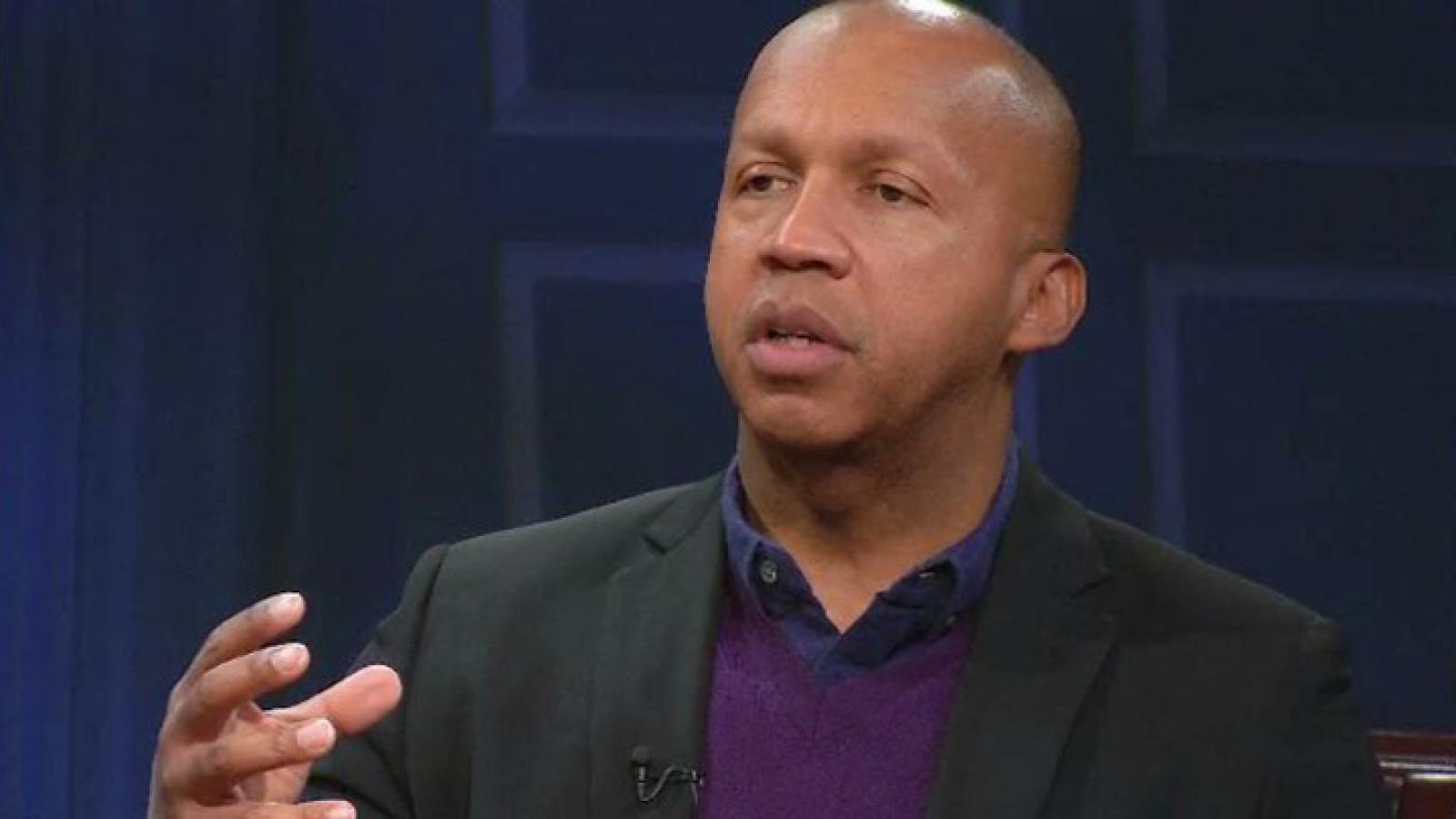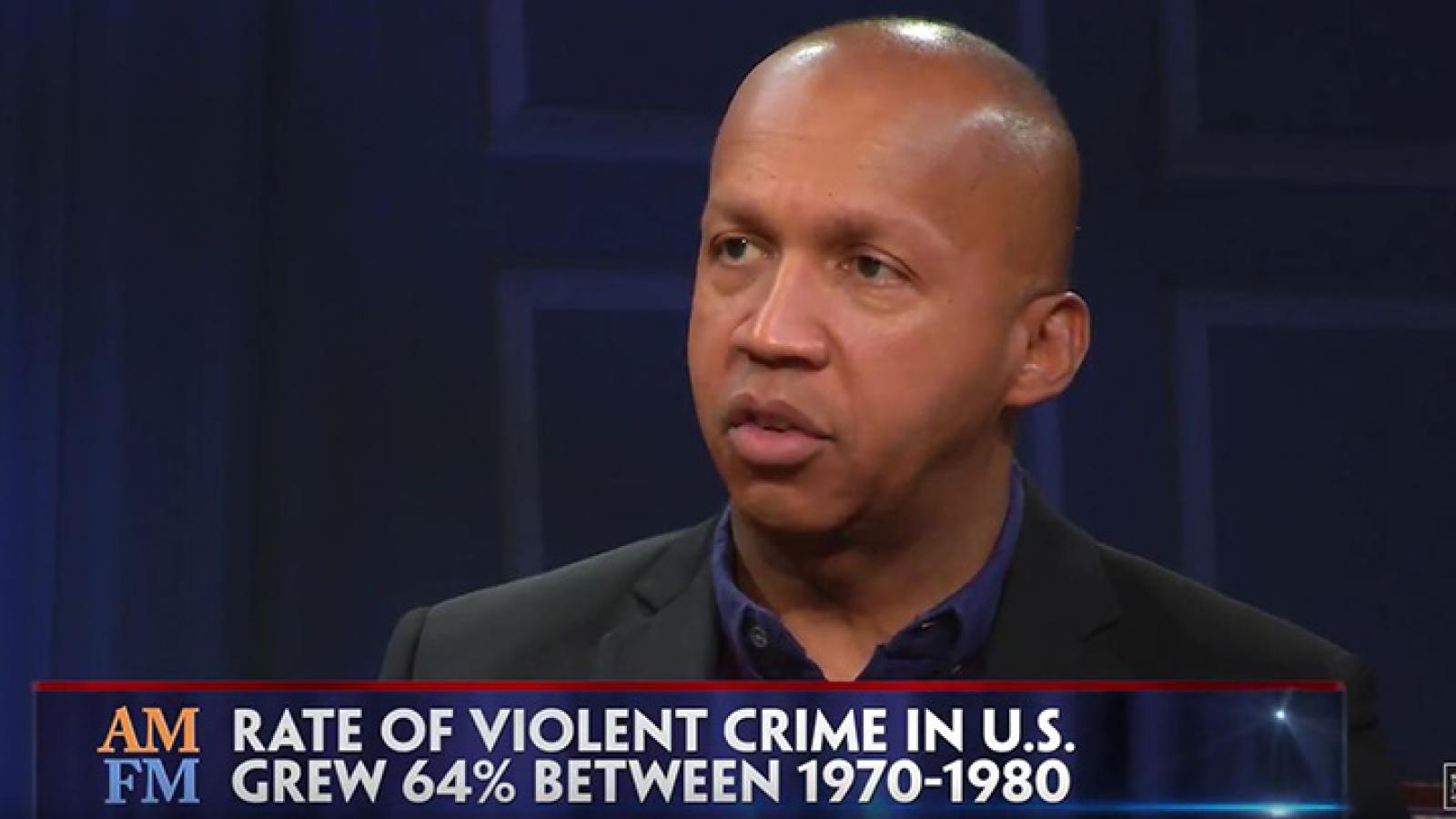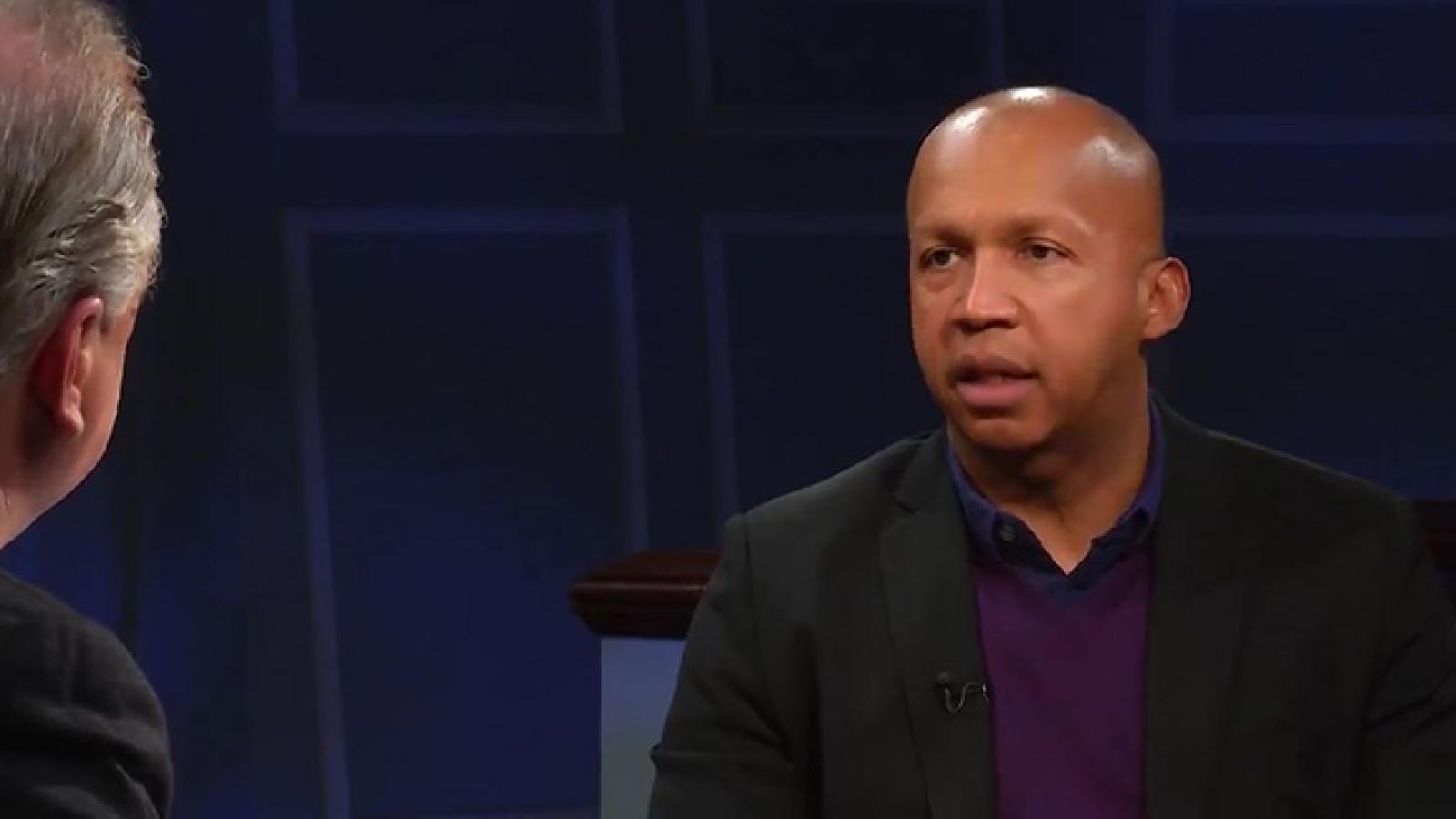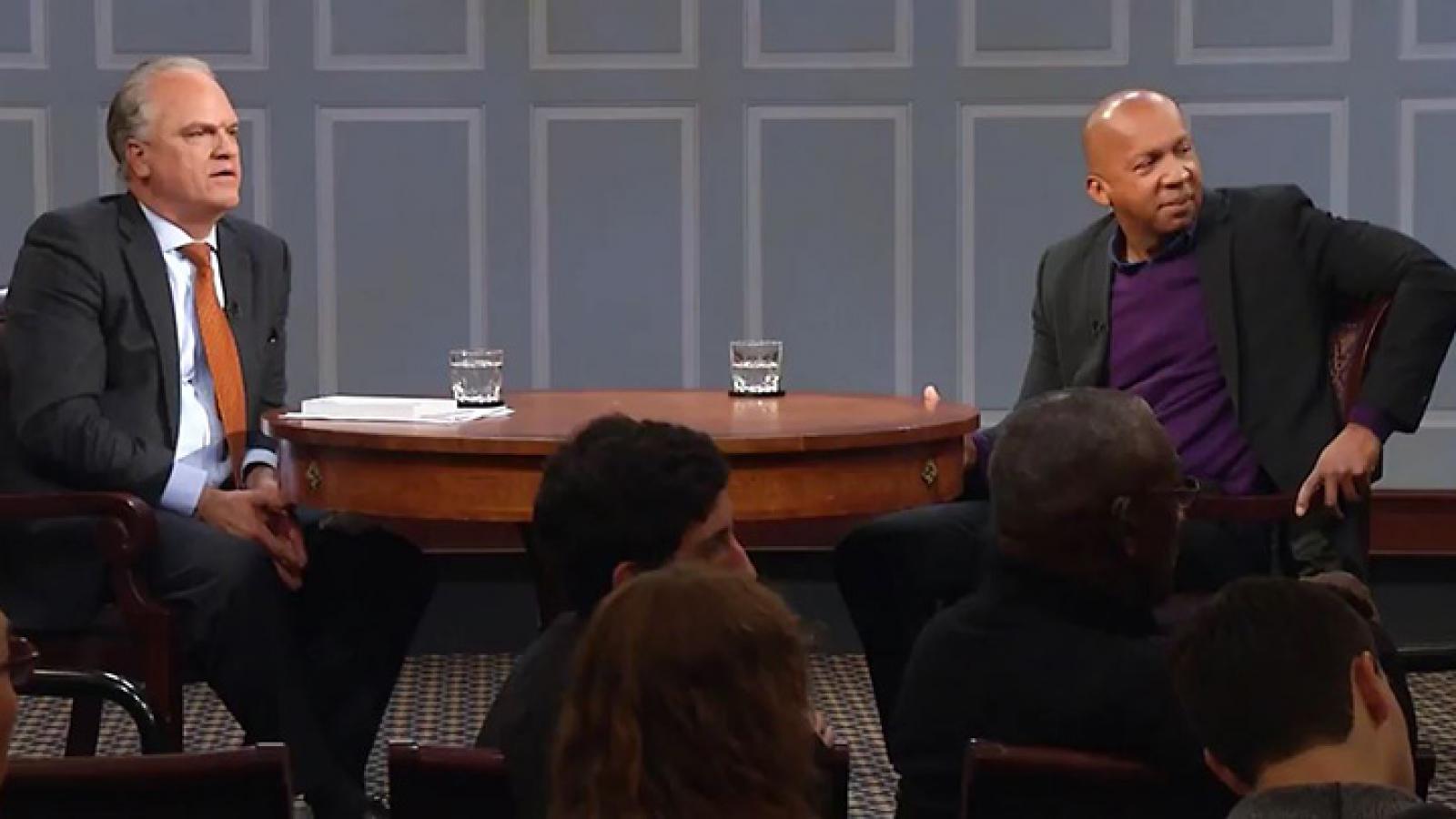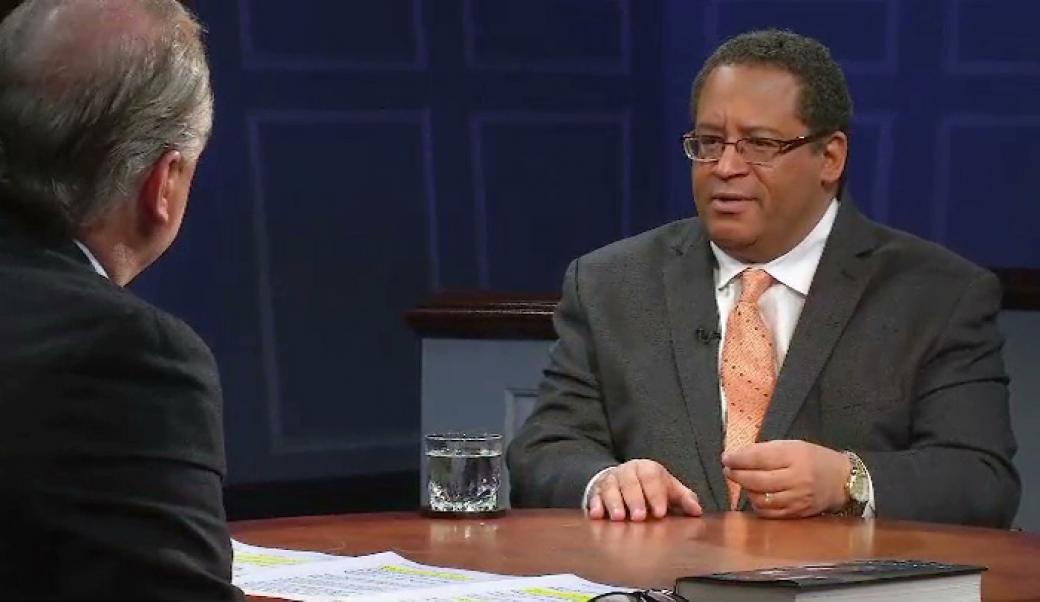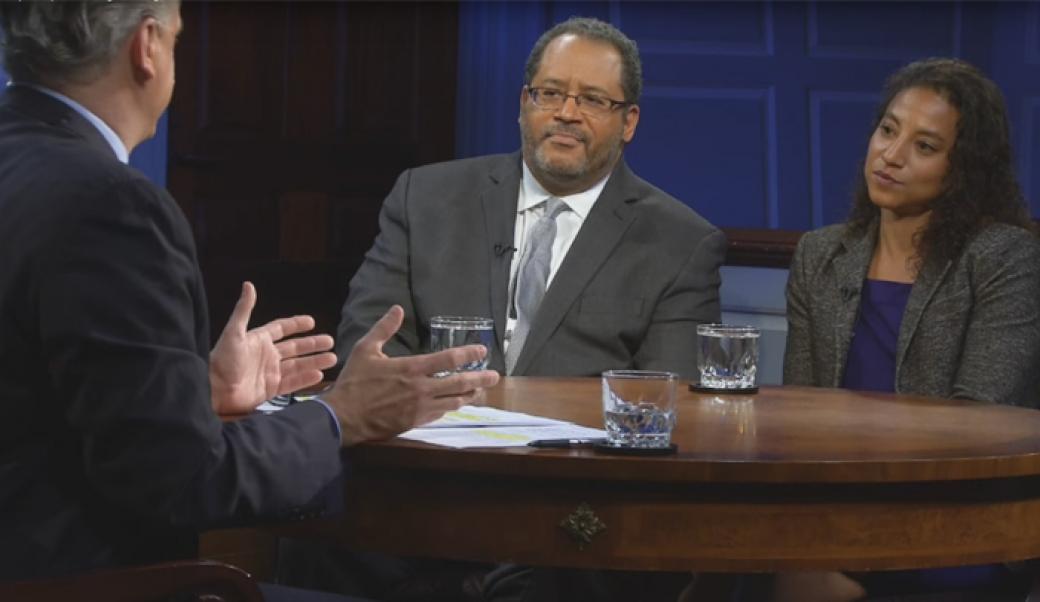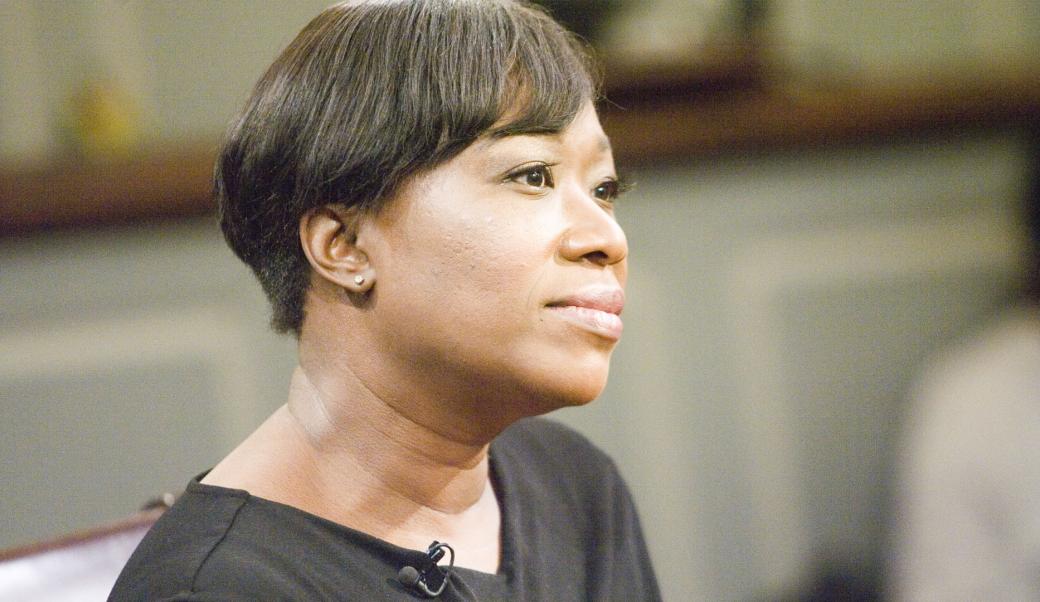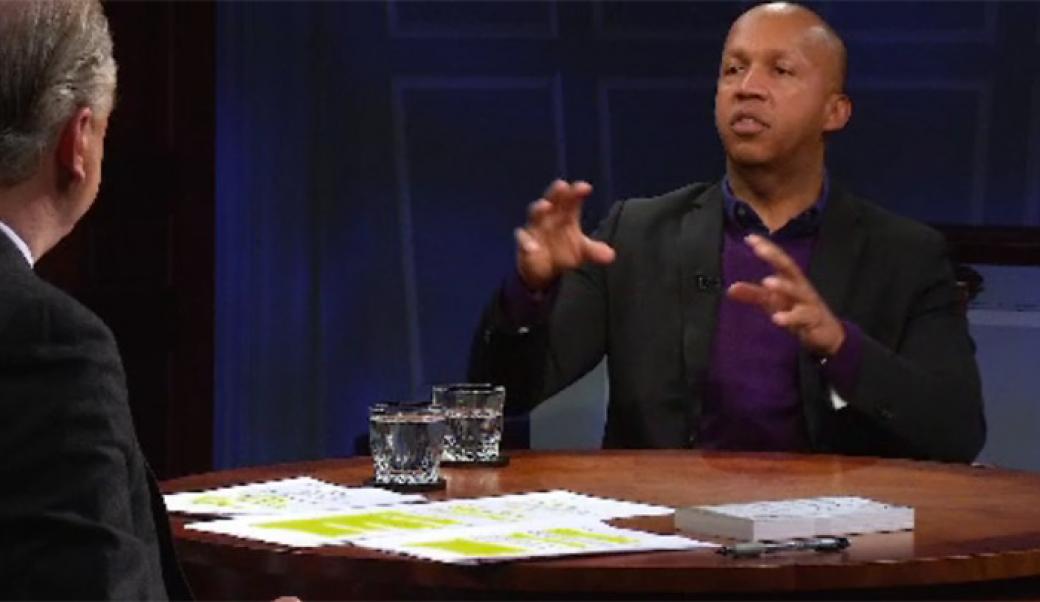About this episode
May 13, 2016
Bryan Stevenson
Bryan Stevenson, author of "Just Mercy: A Story of Justice and Redemption," is executive director of the Equal Justice Initiative and a widely acclaimed public interest lawyer who has dedicated his career to helping the poor, the incarcerated, and the condemned. He is a graduate of Harvard Law School and the Harvard School of Government and has been awarded 21 honorary doctoral degrees. This episode is part one of a two-part interview.
Transcript
0:41 Doug Blackmon: Welcome back to American Forum. We live in a country that imprisons more citizens than any in the world. Probably more than any society in human history. More than the old Soviet Russia and its Gulags a generation ago. More than Communist China. Almost certainly more than all the most repressive regimes around the world from the dark middle ages to the present. Approximately seven million American citizens live under the control of the criminal justice system. More than two million in prison and almost five million on parole or probation. Three thousand Americans await execution in the 31 states where it remains legal. A hundred sixty thousand people are serving life sentences. Almost 50 thousand of those with no chance of parole. In recent years we have also become acutely aware that our system is not just draconian but frequently makes terrible mistakes. Innocent citizens have been put to death. More 330 falsely convicted Americans have been freed from death row on the basis of new DNA technology. Desperate rates and links of incarceration of African American men, children often sentenced to life in prison, and the appeals process most Americans would believe would always remedy any errors has proven to be unreliable and deeply resistant to change. There is a true crisis of confidence in justice. In this episode we return to our ongoing series “What Now? New Dialogues on Race in America.” Joining us is Bryan Stevenson a lawyer and Founder of the Equal Justice Initiative the architect of a landmark Supreme Court ruling that mandatory life sentences for juveniles are unconstitutional and author of the bestselling book, Just Mercy: A Story of Justice and Redemption. Thanks for being here.
FACTOID: The Question: Can U.S. criminal justice system be reformed?
Bryan Stevenson: Delighted to be with you.
2:26 Blackmon: So Bryan, some of those numbers that I just rattled off, they’re a very depressing set of statistics. It’s a depressing reflection of American life. There’s also a number out there relatively recently that came out of the justice department, that the high probability that one out of every three black male babies today is likely to end up going to jail or into the prison system. Is there a way for that to change?
FACTOID: Estimates show 1 in 3 black men are likely to serve time in prison
Stevenson: Well there absolutely is, I mean I think the only encouraging thing to these really dreadful statistics, and they are horrific, all the statistics you mentioned, also the percentage of women going to prison has increased 640 percent in the last 20 years. Seventy percent of these women are single parents with minor children, that’s a very scary statistic. But half of the people we have in prisons suffer from mental illness. The only encouraging this is that this is a relatively recent phenomenon. The American prison population was largely stable throughout most of the 20th century hovered around 200,000. This began in the 1970s when politicians began using crime and crime policy as a way to prove their toughness, to prove their anger. And I think this era, the politics of fear and anger was ushered in when Richard Nixon decided to declare a war on drugs.
FACTOID: Nixon declared war on drugs in 1971, expanded drug agencies
We made a policy choice, we say drugs and drug dependency aren’t health issues, they’re crime issues. And that policy was rooted in this fear. I mean we could of said drug addiction and drug dependency is like alcoholism. If you know someone who is an alcoholic and you see them walk into a bar you don’t think oh let me call the police, you think that’s someone who needs help. And we could of done that, and we still can, and if we do that we began to begin to think about these issues of drug addiction and drug dependency as health issues we’ll begin to see the prison population decline, we’ll see some of these really scary trends reverse. Uh, I think if we get sober about the amount of money were spending we’ll begin to look for less costly, more effective solutions. But it won’t change until we change the political environment that bred these problems.
FACTOID: U.S. has spent over $1 trillion since 1970s in crackdown on drugs
Blackmon: In the ’70s and then the ’80s, there was this dramatic surge in, uh, in crime rates and in violent crimes, and the, and in particular African Americans suffered from the, uh, because African Americans are disproportionately the victims of crime, uh, and so you had a, a real sense of existential crisis in the country around crime, there was also a broad view, and certainly President Nixon shared this and other politicians, that the system had become too lenient, and it was too easy for lawbreakers to escape punishment, and so there was actually something of a consensus that we have to crack down and even if you look back at the polling, even African Americans to some degree felt that way in that period of time. And so, uh, so was it just, a, or was it?
Stevenson: Well I think it’s a little more complicated than that, I actually think at the point when Richard Nixon was declaring war on drugs we had not seen any increase in the violent crime rate. He was really responding to the chaos and the disorder on college campuses, of students organizing and protesting the war. The narrative was they’re only protesting, these are good kids, but they’re protesting because they’ve been disrupted by drugs, LSD, and that was the narrative, and it had nothing to do really with violent crime. And that’s when we began to create these drug laws in the late ’70s and early ’80s. The peak in violent crime actually began in the late ’80s, uh, when the restrictions on access to drugs, when drug dealing became so challenging that it had been taken over by violent gangs.
FACTOID: Rate of violent crime in U.S. grew 64% between 1970-1980
And you had people in really low-income communities seeing the drug trade become this incredibly attractive way to make money, but for the drug laws of the mid-’70s and early ’80s, I’m not sure we would have seen that peak in violence. And then you had an epidemic in communities that had been largely abandoned. When Lyndon Johnson was talking about the great society when people were actually talking about interventions to help, people were coming from generational poverty there was hopefulness. And that was abandoned during the Reagan years when Congress started this narrative of hating the poor, judging the poor. We saw despair grow in this communities, we saw kids being born into violent families where they had to deal with, uh violent neighborhoods and violent schools and violent and by the early ’90s, that trauma led to people joining gangs, or abusing drugs and we had this epidemic of violence. But even after that calmed down we continue to put people in jail and prisons at these record levels. So I think there has been a peak, there was a peak in the violent crime rate in the late ’80s and early ’90s but it doesn’t really explain this dramatic increase in over incarceration. I think that’s explained by these larger, these larger narratives, in many communities today the violent crime rate is about where it was in the 1960s, and yet we had to put 2.3 million people in jails and prisons.
7:25 Blackmon: There are a number of theories that people espouse as to why exactly this happened. Michelle Alexander wrote the very famous book The New Jim Crow which essentially argues that these, uh, that this extreme enforcement, this very ferocious enforcement regime that was put in place, uh, was rather intentionally designed to, uh, to subjugate African Americans, to be a replacement for the old Jim Crow system of segregation. Others would say that it’s, that this is actually more a kind of natural phenomenon of the crime rates did go up, that these factors happened, maybe it was an inadvertent, a terrible outcome, but it was not designed to come out the way it did. But the, but what’s your view? Is there a specific racial animus baked into what happened that’s directed at African Americans?
Stevenson: No I think that there absolutely is. You know I don’t think there’s any reason to think that there wouldn’t be because we never really dealt with the narrative of racial difference that created slavery and lynching and segregation. We didn’t deal with that in 1960s and so I think it would be kind of foolish to think that that’s going to go somewhere when we haven’t talked about it. And so it manifested itself in the criminal justice system. Police violence was an epidemic in the ’60s and the ’70s and the ’80s and the ’90s. It just never stopped, as it hasn’t today. And we tolerated abuse, I mean, you don’t have to say oh let me come up with a set of laws that will get all the black and brown people in jails or prisons for it to be baked in this kind of racial animus. You can just say let me exploit the people who don’t have power. Let me target the people that can’t push back when I begin to enforce drug laws. And I’ll be able to say I’ve done a lot to put people in jails and prisons and that will turn out all the people I’ve put in are black or brown. But here’s an indifference in that that you can’t disconnect from this history. There was never a time over the last 40 years where parents wanted police raiding dorms on college campuses like the University of Virginia or Yale or any state university that we can identify. Parents wouldn’t have tolerated that. There was never a time when the police could have gone into a middle income or an upper income neighborhood, put up barricades on both sides of the street, trap people in their homes and then do drug searching and expect to get reelected, reinforced. But in the poor community, in the projects, you could do that with impunity. You could do that and people would cheer for you, and that’s because of the status of these communities. And that has everything to do with race and everything to do with our history of not valuing the victimization of people of color. The way we value the victimization of other people. The Supreme Court authorized it. In the midst of this, by 1987 this important death penalty case where the court was asked to drive down the death penalty because of evidence of racial bias. And in a five-four decision the court, in this case McClesky vs Kemp, held that Georgia’s death penalty is constitutional for two reasons. First, if we deal with racial bias in the administration of the death penalty, it’s gonna be just a matter of time before lawyers come back and point out the same racial disparities per drug crimes and property crimes and sex crimes and misdemeanors, and we can’t deal with that. And it’s what led Justice Brennan in his dissent to ridicule the Court for its quote “fear of too much justice,” but he was right! The court said this problem was too big. The second thing they said, and I was a young lawyer when this case came down, was a certain quantum of discrimination, a certain amount of bias in the administration of the death penalty is in our opinion, inevitable.
FACTOID: See millercenter.org for other What Now? episodes
That’s the word they used in this decision, and when the United States Supreme Court, with equal justice under law engraved on the front of the building, starts conceding to the inevitability of racial bias in something as extreme as the death penalty, we are tolerating, we are permitting, we are institutionalizing the kind of racial discrimination that Michelle and others have documented. And I don’t think we can claim that it’s an accident. I’m a product of Brown vs. Board of Education. I started my education in a colored school, and lawyers came into the community and forced us around and that’s how I got to go to high school. In the 1950s the courts could have said, “racially segregated education is inevitable!” The consequences of insisting on integration will be overwhelming, challenging, it’s too big, too complex. The Court didn’t say that, there was a commitment to integration, to opportunity that we’ve lost, and when we lose that commitment we will tolerate the victimization and the abuse, uh, the subordination of people who have less power, and that’s what we’ve seen in the modern criminal justice system.
12:07 Blackmon: And interestingly that, that you bring up the comparison to the Supreme Court rulings on education because in the end have they said this will be too difficult to deal with in the education system, the patterns are too entrenched, they actually would have been right. History has proven that, in fact, we haven’t been able to pull that off. So it does suggest that as clear as it is that the criminal justice system has these systems in it that the task of actually ridding the system of these biases will be just as difficult and monumental and likely to be defeated again and again if hopefully, eventually not, but likely to face set back after setback in the same way the school desegre…school integration has been largely held back.
Stevenson: Right, but you have to start with a commitment. And I don’t, I think we made that commitment in education and it has not been implemented in the way we would like to, but I’m a living witness that it was implemented some. There’s a generation of people like me, ah, that benefitted from being able to go colleges and universities that were not open to us, a, before Brown. And we have, ah, we made a token engagement in that and you see some of that in many communities. but there are lots of people, a whole generation of people, who, ah, responded to that commitment and benefitted from that commitment. We haven’t made a commitment in the modern era when it comes to criminal justice. And what’s especially disappointing to me about that, is that the courts have a greater role in enforcing some of these rights than they may might have in some other areas, more so than the education area. And if you don’t have an institution like the Court committed to the rule of law, even when people, a, are, a, against it then we’re not gonna make progress. I mean, there was never a time, a, in my community where you could get the majority of people to vote to end Jim Crow. If it, if it was left to the politics of the era, Alabama would still be segregated Mississippi would still be segregated, Virginia would still be segregated. You wouldn’t see the kind of transformation that we’ve seen in some of these communities. But, it took the commitment from the court to say, no this is unconstitutional, and we’re now obligated to enforce that, a, to move the politics in the right direction. What’s troubling to me about what I’m seeing in the criminal justice system era is that we haven’t made the commitment, a, the Supreme Court in McCleskey says, “We’re not committed to eliminating racial bias in the administration of the death penalty.” Which says something really powerful. I think McCleskey is the Dred Scott of our generation. I think it’s the Plessy v Ferguson of the 20th century, late 20th century.
FACTOID: Plessy v. Ferguson upheld legality of racial segregation
And we haven’t sounded the alarm bells because I think we’ve been distracted by the appearance of progress in too many places that don’t matter as much as where it really matters, and that’s in the spaces where people are vulnerable and abused, and neglected and at risk, a, and that’s why I think of the criminal justice reform effort. I think of issues of the death penalty as civil rights issues. I, I, I do. I don’t think you can say I stand with civil rights, I support civil rights and be indifferent, a, to executing people because they’re black and brown.
15:12 Blackmon: Interestingly I, you know, I’m a great beneficiary of those rulings as well, you know, the, the final Supreme Court ruling that actually compelled full abroad desegregation of public schools in 1969, a, finally triggered what was specifically named the little town of Mississippi that I, where I grew up, a, and so when I enrolled in the first grade in the fall of 1970 I was in the first class of children in Mississippi to be black and white together from first day all the way through, So. . .
Stevenson: Yeah and so that’s, I think it’s an important point because ultimately we are non-free in this country, when we tolerate the kind of inequality and the kind of, a, racialized enforcement of criminal law that we’re talking about. We’re non experiencing, a, the freedom and the justice that I think we, we want, and, a, you know unfortunately the, the, the mass incarceration just spreads, it just starts picking up new, it went from people of color to being targeted and drug prosecutions to children, a, to women, to the mentally ill, a, to homeless people. And now these wide cross sections of people have been I think caught up in a system, a, that’s making a lot of money for a handful of private businesses. But is costing the society in lots of ways including some of those experiential ways that you and I benefitted from, a, when they finally opened up the schools to black and white kids.
16:32 Blackmon: So, you now have come to prominence, a, through the work that you’ve done through the equal justice initiative and some specific cases and then some very specific, very landmark cases you’ve been involved in. But just tell us briefly um, a, sort of what the Equal Justice Initiative intends to do and what it has done.
Stevenson: Yeah, I mean, you’re right. I mean we started out as an organization just providing legal services just to people on death row. I mean there are lots of states that still don’t have public defender systems, which many people don’t know (Blackmon: Yeah, that’s amazing) and Alabama’s one of them. And so we went there to help, a, meet the legal needs of people who are literally dying for legal assistance, but it became clear to me that we were having lots of problems in other parts of our systems. So we started working on cases of people, a, convicted of low-level property crimes and drug crimes, who got life without parole. Really extreme sentencing, representing people serving life for writing a bad check of $30, and things like that, we wanted to challenge that. And then we wanted to challenge, a, the way children are being prosecuted and the United States now has, a, a 250,000 kids who have been prosecuted as a adults, who are serving long prison sentences. We have 3,000 children sentenced to die in prison and working on those kinds of cases for me has been really heartbreaking because you see these children 13,14,15, placed in adult jails where they’re targeted for sexual violence, where they’re abused, and it just is shameful that we’ve allowed that to happen. So, we started trying to deal with those cases, a, and then we started working with people who are seriously mentally ill. We’ve got a lot of people with disabilities that are just vulnerable, a, to a society that incarcerates anything that it doesn’t understand and I think that characterizes much of our policy making.
FACTOID: Approximately 1 in 5 Americans suffer from mental illness
And so now we do a lot of cases that um are designed to help individuals, we do a lot of cases that are trying to change things in a big way, expand the 8th Amendment, I think the 8th Amendment through most of the 20th century was an unter-underutilized constitutional protection that’s vital to a just society. We have to be vigilant in protecting against cruelty by the state or by the government against a particular people. And this era of mass incarceration has now, a, I think ushered in an era of cruelty that’s going to have to be fought and so we’re doing a lot of litigation asking the Court to step in and to respond to these problems. And then the last thing we’re doing our, our latest project, which is a project aimed at talking more broadly about race and trying to change the narrative about our history of racial inequality.
19:01 Blackmon: And, the, and the juvenile cases that you, a, maybe, a, now have the, a, highest profile association with, but the, where you have the a U.S. Supreme Court ruling that essentially says you can’t have mandatory life sentences for juveniles, and you’ve got another case before the court now that, a, that could further extend this, a, the, a, undoing of life-sentences, a, for juveniles, but the, but so, but with the ruling that has already come down, what was the significance of that?
Stevenson: Well it was huge, because I think until, a, the two cases Grand vs. Florida and Miller vs. Alabama the court had sort of constrained its 8th Amendment protections to the death penalty we had a fairly robust jurisprudence of 8th Amendment law saying , you know, executing people for non-homicide crimes is cruel or executing, a, the mentally retarded is cruel, but it hadn’t gotten beyond the death penalty and so the significance of these cases is that it basically has allowed us to challenge other sentences beyond the beyond the death penalty that can be applied in a way where they become, a, equally cruel and unusual. And that’s, a, an opportunity to push the Court, a, to consider things like the propriety of, of life sentences for people because they’re schizophrenic and don’t have the ability to conform to some sort of behaviors, or people who are dealing with trauma or people who are being given these extreme sentences for low-level a property crimes or drug possession, etc. And, a, I’m encouraged by that because if we abandon the death penalty today, if we eliminated death penalty, no more death penalty, a, that would be a big step for this nation, but we would still have a very problematic, unfair, unreliable criminal justice system. It wouldn’t eliminate the challenges of protecting people from cruel and abusive treatment.
FACTOID: 140 countries had discontinued use of death penalty as of 2013
20:47 Blackmon: But you are still pursuing a strategy just as the civil rights movement did, the legal strategy of the civil right movement and other great reform initiatives that we’ve seen. It’s a strategy that accepts the system, that the system we have is the system we’re gonna have, and it accepts that it has to be reformed, and it is essentially as you referred to earlier, a rather than, rather than waiting on the people to, a, for their views to change and to change the politicians, it’s using the constitution to-to force systems to conform to the Constitution. Is our system so flawed that it can’t really be repaired?
Stevenson: I, no, I actually think, a, that history teaches us that if there’s courage, if there’s hope, if people are willing to fight you will need a rights framework to advance things. What history teaches me is that you can be a minority you can be someone who doesn’t have power, you can be someone who, a, can’t get the masses to support you and still assert your right to be human, to be protected, to be free from bias and discrimination. And if there is justice, that right will be heard. You know, I feel that in some ways that we’ve given away too much, a, credit, you know enslaved people, indigenous people, immigrant people, own this nation. We don’t, we’re not visitors, we’re not guests, we created the wealth and the power, and the creativity, and the culture, we own it, and we shouldn’t give it away to people because they say, “You don’t belong.” Because they say, “You’re an immigrant. Because you’re black, you’re brown, you’re indigenous.” And if we own it then we have, a, we have to use our voices to, a, to, a, control it, to participate in it. And I don’t mean at the exclusion of someone else, I mean as an equal partner with other people. And that’s why I don’t, I’m not interested in, a, some radically different system for the sake of radicalism. I’m interested in some radically different results, through any means necess- for, a, any means available, and we’ve got lots of means in front of us if we can utilize them.
22:50 Blackmon: We’re in the midst of this period of activism. Black Lives Matter Movement all of the tension that’s been drawn to, to police conduct, a, that has helped sharper our, a, our understanding I think of the problems of mass incarceration. Ah, but so, a, in the midst of a tumultuous period of discussion around, around these kinds of issues, a, but so we also have a presidential election, in, in motion, we’ll have a new president before long. Ah, if you were sitting down with the new president, a, a week after inauguration, whoever he or she might be, a, and, and the president, you know, however unlikely this might be that certain candidates would actually ask you this question, but if whoever that person is were to say, “Ok, Bryan, you know, tell me, tell me 1,2,or 3, I can’t overrule the Supreme Court, I can’t, I can’t release prisoners from the Alabama state prisons, my direct authority, is limited, a, o-over these issues, but tell me 1,2,3, specific things I really ought to do as president of the United States.” What would you say?
Stevenson: Well, I would say, “You first, a, ought to declare an end to the war on drugs and say under my administration, we’re going to treat drug addiction and drug dependency as a mental health issue, and stop putting people in jails and prisons, who are not a threat to public safety.” A, I’d number 2 say, “I’m going to articulate a goal of reducing the prison population by 50%, a, during the next eight years.” And that means that we can save about $40 billion. We went from $6 billion in 1980 to $80 billion last year. And the third thing I’d say is, “I’m gonna use half of that $40 billion, a, to save children that are being traumatized in poor communities where they’re suffering from abuse and help create an infrastructure that helps mentally ill, help do something to help people who have been formally incarcerated recover, and make it so that we never have to, a, be burdened with the title of “the nation with the highest rate of incarceration in the world.” And I think a president could do that, it’s a leadership challenge that we are chasing, and with the right leadership we can begin conversations that can fundamentally turn this era into likely eras that we often talk about as an era where we were just kind of out of our minds, we say, “What were we thinking about, Segregation forever? What were we thinking about, public lynchings? What were we thinking about, enslaving other human beings?” I think we can get there with regard to this era, but it will take that kind of leadership
Blackmon: I hope you get to have that conversation with the next president
Stevenson: Thank you, I hope so too
Blackmon: Thank you for being here
Stevenson: You’re welcome.
Blackmon: The book is, Just Mercy: A Story of Justice and Redemption. We hope you will join this conversation with American Forum, on the Miller Center Facebook page or by following us on Twitter @DouglasBlackmon or @AmericanForumTV. To send us a comment, watch other episodes, download podcasts, or read a transcript, visit us at millercenter.org/americanforum. I’m Doug Blackmon. See you next time.
